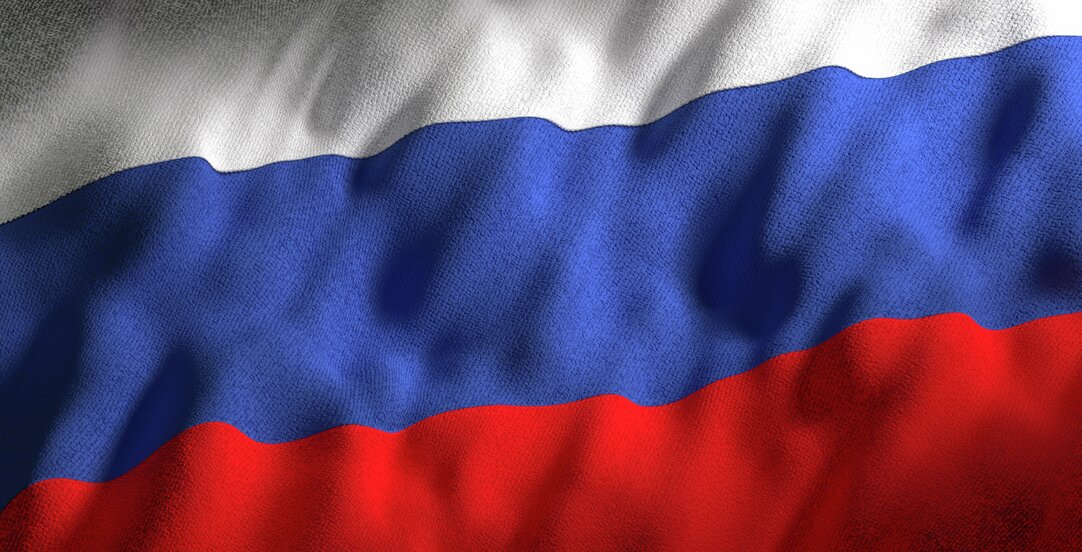Update on Russian countermeasures against so-called "unfriendly states"

In the last week, Russia has announced and implemented several countermeasures against so-called "unfriendly states", i.e. states that recently have imposed sanctions against Russia in response to Russia's military aggression against Ukraine.
Lesetid 8 minutter
Below is a brief update on the Russian countermeasures, potentially affecting any ongoing trade/business in/with Russia. Of particular interest is that Russian debtors may now in certain cases fulfil their payment obligations for credits, loans and other financial instruments towards companies related to "unfriendly states" by establishing a special deposit account in a Russian financial institution in the name of the creditor or a foreign nominee holder of securities, and thereafter pay the amount due in roubles. The Russian Government has also announced that export and/or import of certain goods and commodities from/to Russia soon will be prohibited and/or limited. The list of the goods and commodities encompassed by these restrictions has not yet been published.
List of "unfriendly states"
On 5 March 2022, the Russian Government issued a list of "unfriendly states", (in Russian) which all of these counter-sanctions seem to be targeted at. The following states are included in the list:
- EU member states
- Australia
- Albania
- Andorra
- Great Britain (including the island of Jersey and British oversea territories – the island of Anguilla, British Virgin Islands, Gibraltar)
- Iceland
- Canada
- Liechtenstein
- Micronesia
- Monaco
- New Zealand
- Norway
- Republic of Korea
- San Marino
- North Macedonia
- Singapore
- USA
- Taiwan
- Ukraine
- Montenegro
- Switzerland
- Japan
Currency control measures for Russian legal entities and citizens
On 28 February 2022, President Putin issued Decree No. 79 (Russian), which, inter alia, provides that, effective from 28 February 2022, persons subject to Russian currency control measures (which includes Russian legal entities and citizens, but apparently not local branches of non-Russian entities) are obliged to sell 80 % of the foreign currency they have received as a result of supplying goods, works, services or intellectual property abroad from 1 January 2022. This also applies to 80 % of the foreign currency that they will receive as a result of supplying goods, works, services or intellectual property abroad, effective from 28 February 2022. The further procedure for selling the foreign currency will be set out by the Central Bank of the Russian Federation. Moreover, effective from 1 March 2022, persons subject to Russian currency control measures are prohibited from lending foreign currency to non-residents, placing foreign currency on the foreign accounts of such persons, as well as making payments through foreign processing systems without opening bank accounts. However, these transactions may now be performed subject to approval by a special Government Commission, pursuant to Decree No. 81, cf. the next paragraph below.
Divestment of foreign investors from Russian assets
On 1 March 2022, President Putin issued Decree No. 81 (in Russian), which, inter alia, provides that, effective from 2 March 2022, certain transactions involving Russian residents and legal entities which are either established in "unfriendly states", doing significant business there or deriving significant profit therefrom, as well as entities, wherever established, which are "controlled" by entities meeting these conditions, for example subsidiaries, only may be performed if approved by a special Government Commission. These transactions include lending roubles to foreign investors and the transfer of title to real estate or securities, and are only subject to limited exemptions. The special Government Commission is given the power to approve foreign currency lending to non-residents and placing foreign currency on foreign accounts of Russian residents (i.e. transactions which otherwise are prohibited by Decree No. 79).
Temporary procedure for payments by Russian debtors towards foreign creditors
On 5 March 2022, President Putin issued Decree No. 95 (in Russian), which establishes a temporary procedure for payments by Russian debtors towards foreign creditors. Effective from 5 March 2022, Russian debtors may fulfil their payment obligations for credits, loans and financial instruments towards foreign creditors related to "unfriendly states" by paying the amount due to a special deposit account (type "C" account) opened in the name of a foreign creditor or a foreign nominee holder of securities, in roubles. It appears that these accounts may be opened by request of the Russian debtor alone, without any consent or involvement by the foreign creditor. Of particular interest is that the owners of such deposit accounts are apparently not allowed to convert roubles credited to such accounts into foreign currency and/or transfer any amounts from these accounts outside Russia at the present. The more detailed regime for such accounts will be determined by the Central Bank of the Russian Federation.
This special payment procedure applies to all payments for credits, loans and financial instruments exceeding 10 million roubles (approx. EUR 78 000 / USD 86 000) in one calendar month from Russian debtors to legal entities which are either established in "unfriendly states", doing significant business there or deriving significant profit therefrom, as well as entities, wherever established, which are "controlled" by entities meeting these conditions, for example subsidiaries. However, controlled entities with their seat in the Russian Federation are expressly exempted from the payment procedure. While prepayment under export contracts are not explicitly mentioned in this Decree, it is unclear whether the procedure also will apply to debt arising from commercial prepayment transactions.
The Decree also affects payments for credits, loans and financial instruments by Russian debtors towards other foreign creditors in general (i.e. foreign creditors not related to the "unfriendly states"). Russian debtors may fulfil their obligations to these creditors by transferring the due amount in roubles, equivalent to the value of the obligation in the relevant foreign currency (regardless of which currency the value is expressed in), converted according to the official rate of the Central Bank of the Russian Federation as of the payment date. In these cases, payment to a special deposit account is not required, and the foreign creditor may convert the funds into foreign currency and transfer them outside of Russia. This conversion method also applies to payments to foreign creditors related to "unfriendly states". To that end, we note that the official exchange rate of the Central Bank of the Russian Federation is likely to be lower than the market rate of exchange.
Potential avoidance of the rule through assignment of debt from a foreign creditor related to "unfriendly states" to a Russian creditor or other foreign creditors is restricted by the Decree. The relevant Russian creditor or foreign creditor will be treated as a creditor related to "unfriendly states", if assignment takes place after 1 March 2022.
However, this only appears to be a temporary payment procedure, as the decree empowers the Central Bank of the Russian Federation (with regard to credit institutions and non-bank financial institutions) and the Ministry of Finance of the Russian Federation (with regard to other debtors) to establish an alternative procedure, which presumably will replace and/or supplement the temporary procedure once implemented. Moreover, until such an alternative procedure has been established, permission may be granted by the Central Bank or the Ministry of Finance on an individual basis for Russian debtors to fulfil their obligations through an alternative payment procedure.
Export and/or import restrictions on certain goods and commodities
On 8 March 2022, President Putin issued Decree No. 100 (in Russian), which orders the Russian Government to ensure that (i) export and/or import of some goods and commodities are prohibited until 31 December 2022, and that (ii) export and/or import of other goods and commodities are limited until 31 December 2022. The purpose of these measures is allegedly to ensure the safety of the Russian Federation and to prevent interruptions in the functioning of the domestic industry.
According to the Decree, the Russian Government shall compile a list of the goods and commodities that will be subject to export and/or import restrictions, as well as a list of the states to which the export and/or import restrictions will apply within 48 hours. It is uncertain whether this refers to the list of "unfriendly states" already issued, or whether a new list will be compiled for this purpose specifically. The Russian Government is further empowered to set out the closer details of the export and/or import restrictions with respect to some types of goods and commodities, and in relation to some particular legal entities.
The Decree makes an express exemption for export and/or import of goods and commodities by natural persons (Russian citizens, foreigners and stateless persons), for their own personal use.
It was reported on 9 March 2022 that the list of goods and commodities encompassed by the export and/or import restrictions will be published by the Russian Government within short.
Possible nationalisation of assets owned by companies that have left the Russian Federation
On 9 March 2022, the Russian Government Commission on Draft Legislation approved an initiative from Russia's ruling party, United Russia, aimed at the possible nationalisation of the assets of foreign companies that have left the Russian market. The draft law would allow for external court administration of companies, in which more than 25 % of the shares are controlled by foreign entities from "unfriendly states", if they have ceased doing business in Russia. The aim is allegedly to prevent bankruptcy and maintain employment. According to the draft law project, the owners of the company will only be able to refuse external administration if either business resumes in Russia, or if the shares are sold under terms that business is upheld and employees maintained. If the owner does not agree to either of these conditions, the company will be put under external administration for three months, after which the company's shares will be put on the market. The potential buyer must agree to keep no less than 2/3 of the working stock and continue the business activities of the old company for at least one year.
While approval by the relevant government commission only is one of several steps in the legislative process in Russia, we note that the initiator, United Russia, has the overwhelming majority in the Federal Assembly of the Russian federation (i.e. the State Duma and the Federation Council). It was also reported on 9 March 2022 that the Ministry for Economic Development supported the draft law. Under the given circumstances, it is therefore likely that the draft law eventually will be passed (even though it may be subject to further changes going forward).
WR Sanctions Alerts provide you with updates on material developments in the country-specific sanctions programmes implemented by the US, the UN, the UK, the EU and Norway, and other key jurisdictions if relevant. We will not provide updates on mere prolongations, without material changes, of existing sanctions programmes, nor on any listings or de-listings of individuals/entities placed on implemented sanctions lists. Please note that the WR Sanctions Alerts are provided as general information and do not constitute legal advice.
